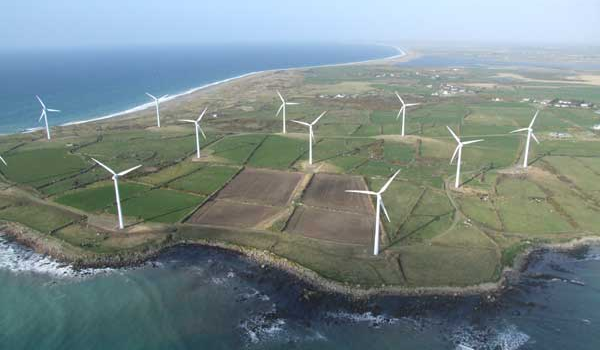 IDG recently published an interesting article on what the technology industry can do about climate change.
IDG recently published an interesting article on what the technology industry can do about climate change.
The author of the piece, Nick Booth, points out that anthropomorphic climate change has many sources, but one of them is the technology industry. Booth says that within the technology sector data centres and large technology companies have a large part to play in how the industry can deal with its contribution to climate change.
Booth said that in the US, in North Carolina, Apple, Facebook and Google “forced America’s largest utility, Duke Energy, to create the Green Source Rider”, a scheme whereby customers of the energy provider could specify that all of their supplied energy came from renewable sources. It is somewhat baffling that such a scheme was not already in place, but it shows the power that such consumers can have in the market.
When we look at the fact that worldwide in 2011, 63% of the world’s electricity came from coal and gas, the need for more energy from renewables has never been greater (World Bank, Development Indicators 2012).
When this is combined with the expected growth in the coming years of data centres due to demand for Internet services, and the issue becomes even more critical. The article cites another report (SMARTer 2020) that says cloud demand is expected to rise 63% 2020. As the technology industry in general exceeded aviation globally as a producer of CO2 in 2007, the implications are clear.
If the world of 2020 sees a 63% increase in the use of cloud services, the data centre of tomorrow needs to be more than twice as efficient as today if current rates of CO2 emissions are to be maintained, let alone lowered
But as the article goes on to say that the technology industry must bring its might to bear on solving issues such as water shortages, falling crop yields and rising sea levels, it appears that the a major point is being missed.
Following the example of Apple, Facebook and Google with Duke Energy in North Carolina, do large technology companies, be they manufacturers of millions of consumer devices or the builders and keepers of huge data centres, not have a responsibility to ensure that they not only run the most efficient services possible to minimise their energy usage, but also to work with energy providers to ensure that sufficient resources are put to into the development of renewable sources and that where such sources are not available, they do not build facilities?
If the world of 2020 sees a 63% increase in the use of cloud services, the data centre of tomorrow needs to be more than twice as efficient as today if current rates of CO2 emissions are to be maintained, let alone lowered. Are large technology companies doing enough to fund and drive research into renewable energy sources that will reduce reliance on carbon producing sources?
Google.org has invested $45 million in renewable energy research, ranging from solar and wind to geothermal energy, and claims a high level of success. However, given the size and potential growth of that company to meet those cloud demands by 2020, is that enough? Is that anything commensurate with the problem? And what of Amazon, Facebook, Twitter, Microsoft and all of the other tech giants? Are these companies investing enough, and equally importantly, are they using their clout to ensure that renewable energy is a first choice and not just a sop to some CSR clause in a corporate brochure?
The mantra for many companies in the cloud service area, since the term became ubiquitous, has been around availability and reliability. It is possible that in the future, another key element of any such services are the fact that they are supported by renewable energy. In much the same way that information security is now as much about your partners and suppliers as yourself, in the near future, how the services you consume as an organisation are powered may become a determining factor in what is chosen.
As I reasoned previously, power may be one of the top determining factors in server and data centre design in the future, where that power comes from may soon be as important a factor in choosing cloud services. Where companies cannot show this information, or where it falls below expected standards, it may significantly impact their ability to do business. Equally, if the giants of the industry are shown to have underinvested in renewable technology development or failed to use their influence to ensure the availability of renewable energy, the backlash from both the public and the markets may make for an uncertain future.






Subscribers 0
Fans 0
Followers 0
Followers